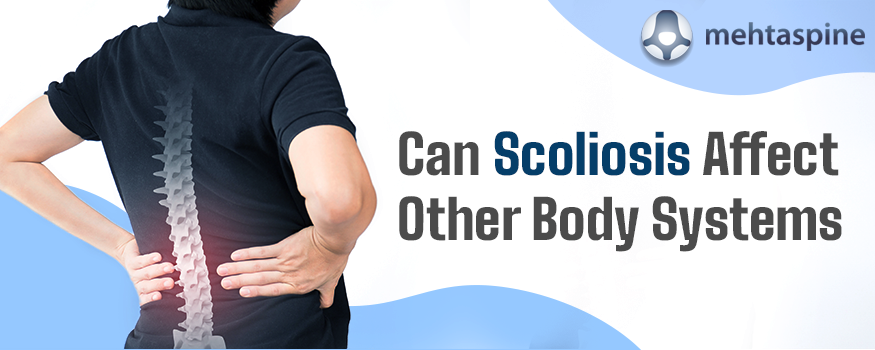Can Scoliosis Affect Other Body Systems?
The spine provides structural support to the human body and is vital for alignment. So, the abnormal curvature of the spine caused by scoliosis disturbs the musculoskeletal system and every other system associated with it in the human body.
Because the human body is interconnected, the sideways curvature often causes a ripple effect that disturbs alignment functions and may even damage other body systems if not treated promptly. With the inputs from a scoliosis specialist and orthopaedic spine surgeon in the UK, Mr. Jwalant S. Mehta, let us look at the possible consequences caused by scoliosis on other body systems.
So, here are some ways in which progressive scoliosis may affect other body systems:
Musculoskeletal System:
The musculoskeletal system is the primary victim of the sideways curvature of the spine caused by scoliosis. The body tries to compensate for the abnormal curve of the spine, pushing other muscles around, leading to muscular imbalances and asymmetry in the back muscles.
The postural changes brought upon by the spinal curve negatively impact human biomechanics, from how we stand and walk to the alignment of the hips and shoulders. “The muscular imbalances, changes in gait, abnormal biomechanics, and asymmetry in muscles can put extra stress on the joints, leading to joint pains in hips, ankles, and knees.”, says a scoliosis specialist in the UK, Mr Jwalant S Mehta.
Respiratory System:
In severe cases of scoliosis, the upper back can distort and compress the chest cavity, reducing the space available for the lungs to expand, which limits lung expansion. The limited lung expansion reduces lung capacity, negatively impacting breathing and drastically reducing exercise tolerance.
Digestive System:
The space for the stomach and intestines can also get impacted in severe scoliosis cases, affecting the position and function of the abdominal organs and leading to digestive issues. Patients with severe scoliosis may experience digestive problems like acid reflux, constipation, bloating, and difficulty absorbing nutrients.
Cardiovascular System:
In extreme cases of scoliosis, the curvature may impact the chest cavity, compressing the heart, which affects its ability to pump blood efficiently.
Nervous and Reproductive System:
In severe cases of scoliosis, nerve compression that exits the spine can happen, leading to various neurological symptoms. Rarely, scoliosis can also impact the reproductive organs, potentially affecting the patient’s fertility.
The mental and emotional health of the patients also bears the brunt of scoliosis. The body distortion caused by severe scoliosis can lead to chronic pain and body image issues, which directly impact self-esteem and mental well-being, leading to depression and anxiety in some cases.
In all the above cases, the severe cases of scoliosis cause patients to suffer the impact on their body systems. Unfortunately, it may not take much time for scoliosis to become painful, from mild to moderate. So, early detection of scoliosis is necessary to improve the treatment outcomes and reduce the chance of potential problems in the long run. If you are in the UK and are looking for more information on scoliosis and treatment options, Mr. Jwalant S. Mehta is the leading orthopaedic spine surgeon and scoliosis specialist who can help you.


